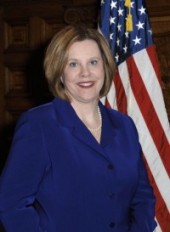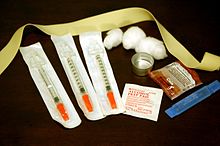The health care scoreboard on Crossover Day shows some expected results — and some surprises as well.

A large number of health care bills had moved from one legislative chamber to the other by the end of Crossover, which was Friday, the 28th day of the 40-day legislative session. That’s the last day for a bill to move from one chamber of the Legislature to the other and thereby retain a path to becoming law this year.
While no bill is truly dead until the last gavel bangs on the 40th day of the session — because such a proposal can be attached to other pending legislation — those that fail to make the Crossover cut are usually finished for the year.
And even though a bill clears one chamber easily, that doesn’t mean the legislation will have an easy time in the other house – or even pass at all.
The surest bet on health-related legislation this year has already happened. The Legislature overwhelmingly approved the renewal of the hospital “provider fee,’’ a mechanism that draws an extra $600 million in federal funding for the state’s Medicaid program. And Gov. Nathan Deal has already signed the measure, a priority of his, into law.

Among the surprises was that no major bill related to the certificate of need (CON) program generated legislative action. CON rules govern the expansion and creation of health care facilities and services in the state.
The Cancer Treatment Centers of America sought a CON change to allow its Newnan facility to accept more Georgia patients, while a group of doctors wanted to loosen restrictions on operating a multispecialty outpatient surgery center.
Dental hygienists have reason to smile
Among the surprises early on was a quick compromise on the proposal to allow dental hygienists to practice in safety-net settings, school clinics and nursing homes without a dentist being present. The deal on House Bill 154, sponsored by Rep. Sharon Cooper, a Marietta Republican, avoided the conflict that erupted in last year’s General Assembly.
(Here’s a recent GHN article on the dental hygienist bill.)

When it came to surprises, the problem of “surprise” medical billing got intense interest under the Gold Dome this year.
Surprise billing is when patients get unexpected bills from providers who are not in their network, even though the hospital where the care took place is a network facility. These charges, which have rocked many consumers, can come from ER doctors, anesthesiologists and radiologists, among others.
A Senate bill, sponsored by Sen. Renee Unterman (R-Buford), passed that chamber, while a House version, which takes a different approach to the problem, failed to make it through.
Children’s health was the focus of a handful of measures that cleared at least one house.
On Friday, state senators approved a bill to require schools and day care centers to test their water for lead contamination. (GHN article here).
The House passed a proposal making recess period mandatory in the younger grades. And late Friday, the state Senate passed a bill requiring insurers to cover hearing aids for children.

“So far, it has been a good session for child health policy,’’ said Polly McKinney of Voices for Georgia’s Children. “It is looking like there will be money in the budget for children with autism and young children with behavioral health challenges.’’
“While every session sees bills on children’s issues, this year it seems like lawmakers are working even harder to address things which greatly affect a child’s trajectory through life,” she said, also citing the dental hygienist bill as a help to children who lack dental care.
“Many of these bills have been attempted in years past and failed to cross the finish line, but looking at the discourse surrounding them this year gives, I am hopeful that they can ride the wave to the governor’s desk,’’ McKinney added.
Emphasis on opioids
A major bill to fight Georgia’s opioid epidemic passed the Senate. It would codify Gov. Deal’s executive order allowing the sale of naloxone, an antidote for drug overdoses, without a prescription, and would more closely track the prescribing of opioid medications.

And a second proposal, also approved by the Senate, would put more state oversight on the opioid treatment centers that have proliferated, especially in North Georgia. The centers offer medical-assisted treatment and counseling to help treat patients with addictions to heroin and other opioids.
The House passed a “Campus Carry” bill that would allow carrying of concealed weapons on Georgia’s public college and university campuses. Similar legislation drew a veto from Gov. Nathan Deal last year.

The latest dispute about the scope of medical practice erupted over legislation to allow optometrists — who examine the eye, test vision and prescribe corrective treatment but are not physicians — to administer drug injections into patients’ eyelids. Ophthalmologists, who are physicians specializing in the eye, are strongly opposed to this, as is the Medical Association of Georgia, a leading physician organization.
A similar bill was defeated twice by a House health panel. Senate Bill 221, though, was approved by the Senate late Friday. Will that bill fare better with the same House panel this time? (GHN article here.)
One surprise outcome involved tax credits and rural health care.
The lawmaker who created Georgia’s new tax credit program for rural hospitals sought to boost the incentives for donors.

State Rep. Geoff Duncan, a Cumming Republican, introduced a House bill that would raise the tax credit from 70 percent to 90 percent for individuals and corporations who donate money to rural hospitals.
But the bill never got a House floor vote, despite support from rural hospitals.
Needle exchange plan hits a wall
State Rep. Allen Peake, a Macon Republican, continued his quest to broaden access to medical marijuana. House Bill 65, which passed that chamber, allow people with autism, Alzheimer’s and HIV/AIDS to legally possess cannabis oil in the state, joining a list of other health conditions that qualify people for use of the substance.
While Georgia is in the midst of a deep nursing shortage (Article here), Senate Bill 166, sponsored by Unterman, would allow RNs and LPNs to practice in Georgia along with the 25 member states under one multistate license.

Public health advocates were disappointed when a bill that would help facilitate needle exchange programs in the state did not clear the House Rules Committee. Needle exchanges provide drug users with clean needles to replace used ones.
Sponsored by Rep. Betty Price, wife of federal Health and Human Services Secretary Tom Price, the legislation aimed to lower rates of HIV and hepatitis C infections by reducing the sharing of dirty needles. (GHN article)

